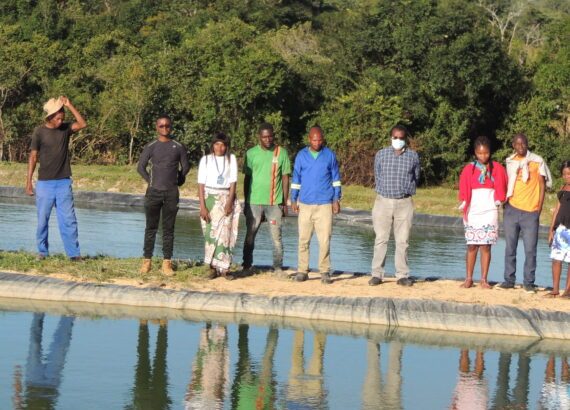The Youth Compact of the Technologies of African Agricultural Transformation (TAAT) has a mandate to promote economic power among youth in Africa. This is done by exposing youth to agribusiness value chains and various profitability mechanisms. In Zambia, the compact, also called ENABLE-TAAT, has recorded a recurring success among the youth who are making a livelihood from the aquaculture value chain.
At the end of 2021, ENABLE TAAT beneficiaries belonging to the “Mkushi Youth Skills” Fish Cluster harvested over 1000kg of fresh fish from their fishponds. With the start of a new year, the youth continued to operate and manage their fish farming enterprise; they re-stocked some of the fishponds with 19000 fingerlings and embarked on the second production cycle. Income generated from their previous harvest has been re-invested in the purchase of fish feed and 19000 juvenile fingerlings from Chalata Fisheries, which is operated by the Ministry of Fisheries.
The cluster has a reserve of 278.5 bags of fish feed, which is meant to cover the whole culture period of six months. Joseph Mwitwa, the Cluster Coordinator, has assured ENABLE-TAAT Zambia of another profitable cycle, where all group-owned facilities and resources will be well managed, to grow fish to the desired market size and to generate more profit at the end of the culture period.
The youth cluster has a plan to harvest and sell their fish on a client-order basis, thereby establishing clients within and around Mkushi Town for subsequent production cycles, and to stagger the harvest of fish to ensure a continuous supply of fish in the Mkushi. The agripreneurs have been able to attract a good market and are looking to maintain the enterprise such that it becomes the largest supplier of fish in Mkushi. In the meantime, ENABLE TAAT continues to provide mentorship for the youth through the stages of their progress, to ensure sustainability.

